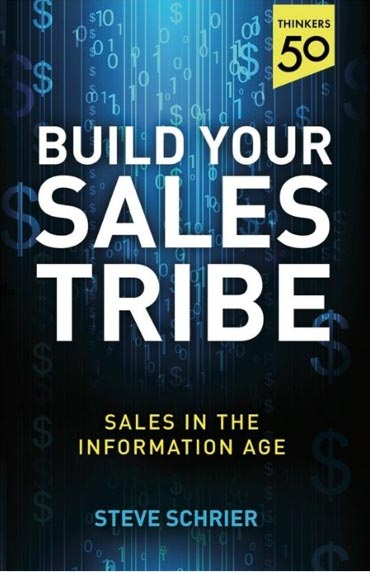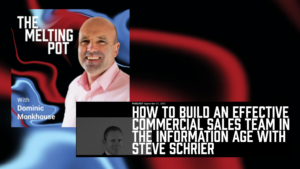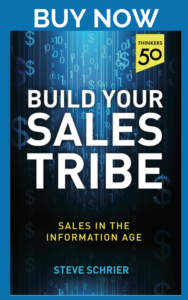
Talent isn’t everything. To ensure lasting and sustainable success you need to know how you find and develop skills for your team.
If you’ve ever seen Moneyball, you’ll know about Billy Beane, the Baseball executive who pioneered a new way of winning with less. For him it was not about buying talent, it was about buying runs. With this approach he found a way to win.
Where he led other sports teams has followed, but his success also offers lessons for your sales team, because, while most people go looking for talent, what you really need are skills. Skills and talent.
Talent versus skills
There is a subtle but very important difference between the two. Talent is something you’re born with while skills are things you acquire through time, experience and hard graft.
Many companies assume that, if they just focus on hiring talented people, everything else will slot into place, but there’s a problem. Talented people aren’t just lying around and sometimes talented people don’t develop into the best sales professionals.
In an increasingly demanding and competitive business world, the best graduates with the best grades are being snapped up before you can blink.
As such, if you base your recruitment strategies only around looking for talented people it becomes a self fulfilling prophecy. Inevitably there will never quite be enough of them to go around.
Furthermore, talent alone is not always enough. That person you think is going to be a superstar doesn’t always turn out to be as good as you’d expected. This is another lesson Billy Beane can offer people. Back when he was young, he was one of those ‘talents’ scouts get excited about. He was snapped up as a first draft pick and seemed to have a great future ahead of him.
Unfortunately, things didn’t quite work out. He had all the talent in the world, but he lacked some of the characteristics and qualities it took to succeed.
Obviously, you’re looking for people with something special about them. For example, if you’re looking to build a baseball team, it makes sense to find people with at least some of the characteristics which go towards making a good baseball player, such as a good eye or a decent turn of speed.
Then, with a little coaching and development, they can develop the skills needed to become a championship winning team.
Of course, some people are naturally more predisposed to a job than others. Some will be more confident, pick up details more quickly and have an approach which is more suited to selling your product or service.
But if you take someone with perfect grades who has never failed at anything, you’re not usually going to get a good salesperson.
Instead, what you’re looking for are people with the skills and characteristics which suggests they can develop into the kind of salespeople you need.
Here are a few traits to look for:
- Problem solving: An ability to use their imagination to overcome any problems which are put before them.
- Asking questions: People who are able to establish themselves as a questioner and create an environment where they are able to ask the right questions to uncover opportunity.
- Listening: Coupled with questioning, a salesperson who always has his or her mind switched to ‘broadcast’ isn’t going to do much good. You need someone who is willing to listen, learn and improve.
- Empathy: Empathy is a key skill for selling in the Information Age. There is a post on empathy for modern selling here.
- Willingness to learn: In the digital information age an ability to adapt and build your own skills will be crucial as technology creates more opportunities and challenges.
- A desire to make money: This desire will drive them to generate more sales for your team.
- Be target focused: Sales is all about targets. You want people who can set goals and work towards achieving them.
- Confidence: This is not necessarily about people who fulfil the cocky salesperson stereotype. However, you will need someone who is happy making noise on the phone, running conversations and building relationships with your clients. This also involves having the confidence to fail.
The truth is, talent may be in short supply, but skills can be developed. If you go looking there are people with the potential and personality traits to make a top-notch sales team. You simply need to know what qualities to look for and how to support people to make the most of their potential. This may take a little time and effort, but it’s much more productive than throwing your hands up in the air and complaining that you just can’t find the quality of people these days.
Developing the skills
Understanding what skills you need is one thing, identifying people who have them is another. Much of this will come in the way you manage and support people. In sports good managers and coaches have a habit of getting the best out of people. The same is true in sales, perhaps more than any other area of the organisation.
This starts with putting the right structure in place. You want to manage and develop the education process and make sure they understand what’s expected of them. This should be a two-way process. You want people to be comfortable giving feedback and helping design a process which works for you.
Targets which are realistically achievable give people a clear goal to work towards. Combined with clear reporting and metrics, you can track how your team is doing and where they need to improve.
Most of all, salespeople need focus. Making a sale can be difficult. They have to break down barriers, warm up prospects and move towards that final signature. It’s all too easy to get distracted by other tasks such as administration. It’s up to you to give them the support they need and keep them focused on the task ahead.
Equally, just because someone is great at one part of the job, doesn’t mean they will thrive at everything. It’s no good having someone great at smashing down doors, if they won’t complete the paperwork to seal the deal or adhere to reporting on metrics.
If someone is a disruptive element the entire team can suffer. Even if you have one stellar salesperson, it doesn’t help if they have a negative impact on the team. You can end up becoming over reliant on one or two talented people without developing everyone else.
Building a great team is about coding in success for the long term. Just as with a sports team the temptation to go for the most talented individuals can be counterproductive. Instead, keep an eye on the end goal, the sales you want to achieve and the skills your team need to get there. If you do that, you’ll be have a much better chance of being successful.
This post is supports advice in Build Your Sales Tribe – Sales in the Information Age Book. If you own the book, thanks for visiting. If you don’t own the book, find out more here: www.salestribe.co.uk
Books to read




Keep inline with the latest thinking in successful selling
Related Articles







